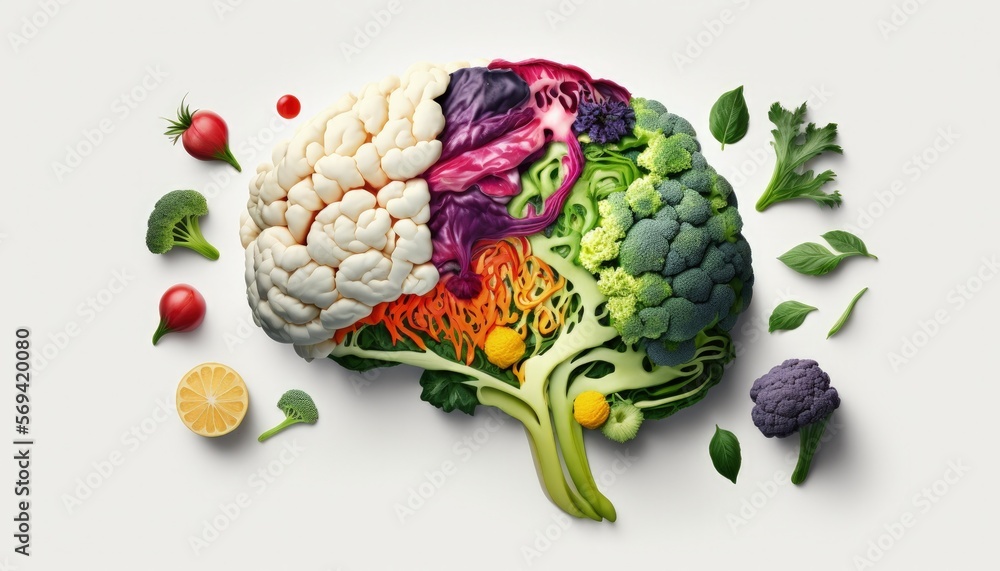

Your brain is the control center of your entire body. It manages your thoughts, emotions, memory, and movements. Taking care of your brain health is essential for living a balanced, focused, and fulfilling life. Yet, in our busy modern world, stress, poor sleep, and unhealthy habits often take a toll on our cognitive strength and emotional stability.
Fortunately, maintaining brain health doesn’t require complicated routines or expensive treatments. Simple lifestyle choices, nutritious foods, and mindful habits can help protect and enhance your brain’s function throughout life.

A healthy brain allows you to think clearly, make sound decisions, and maintain emotional balance. It impacts every aspect of your well-being — from your creativity and memory to your mood and energy. When your brain health declines, it can lead to forgetfulness, mental fatigue, lack of focus, or even emotional imbalance.
Strong brain health also supports better productivity and resilience against age-related cognitive decline. In other words, the healthier your brain, the stronger your entire body and mind will function.
Many people experience a decline in focus, memory, and clarity due to everyday habits that harm the brain. Below are some common factors that can weaken brain health over time:
Nutrition plays a vital role in keeping your brain sharp. The brain requires a constant supply of vitamins, antioxidants, and healthy fats to perform efficiently. Here are some of the best foods to include in your daily diet:
Fish like salmon, tuna, and sardines are rich in omega-3 fatty acids, which build brain cells and improve memory.
Vegetables such as spinach, kale, and broccoli are packed with antioxidants and vitamin K, which help slow cognitive decline.
Almonds, walnuts, and flaxseeds contain vitamin E and healthy fats that protect the brain from oxidative stress.
Blueberries, strawberries, and blackberries are rich in antioxidants that support memory and prevent cell damage.
Whole grains improve blood flow to the brain, helping with better concentration and energy levels.
Moderate amounts of dark chocolate can boost focus and mood, thanks to flavonoids and caffeine.
For more brain health tips and daily nutrition guidance, visit CogniSurge.
Aside from food, your daily habits play a major role in maintaining your brain health. The good news is, small consistent actions can lead to long-lasting improvement in focus, memory, and clarity.
Regular exercise increases blood flow to the brain, enhances learning ability, and releases endorphins that boost mood. Activities like walking, yoga, or cycling can make a big difference.
Your brain restores itself during sleep. Aim for 7–8 hours of quality rest each night to strengthen memory and emotional stability.
Keep your brain active with puzzles, reading, or learning new skills. Mental stimulation builds new neural pathways, improving your brain health and keeping your mind young.
Practicing mindfulness, deep breathing, or meditation helps calm the nervous system. Chronic stress is one of the biggest enemies of brain balance.
Social interactions and positive relationships stimulate cognitive function and reduce the risk of memory loss.
Too much exposure to screens can overload the brain, reduce focus, and affect sleep patterns. Take regular digital breaks to refresh your mind.
Brain health isn’t just about physical function — it’s also deeply tied to your emotional and mental state. Negative emotions, anxiety, and depression can disrupt cognitive balance.
Here are a few emotional wellness tips to maintain strong brain health:
When you nurture both your emotions and your thoughts, your brain functions more efficiently and positively.
You don’t need drastic changes to improve your brain health — consistency is the key. Here are simple yet effective daily tips:
These small actions may seem simple but collectively lead to long-term cognitive strength.
Relaxation is as important as stimulation for maintaining brain health. Stress reduction and rest allow your brain to recharge and perform better.
Try these natural methods to relax your brain:
Relaxation helps your brain stay flexible, creative, and ready for challenges.
Long-term brain health depends on how consistently you care for your body and mind. The earlier you start healthy habits, the better your brain functions as you age.
Follow these steps for lifelong brain strength:
For more brain health tips and long-term wellness advice, visit CogniSurge.
If you notice signs like frequent forgetfulness, trouble focusing, or confusion, it may be time to pay closer attention to your brain health. These symptoms can often improve with better nutrition, exercise, and stress control.
However, persistent or severe symptoms should not be ignored. Paying attention early helps prevent bigger issues later in life.
Your brain is your most powerful organ — it shapes your reality, emotions, and actions. Taking care of it ensures that you stay focused, alert, and positive every day.
By following a nutritious diet, staying active, managing stress, and maintaining emotional balance, you can naturally enhance your brain health and enjoy a sharper, more energetic mind.
Start today — your future self will thank you.
This product is very helpful for this problem.